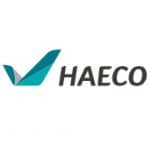Rolls-Royce Delivers on Sustainable Aviation Fuel commitments
As the world continues to reconnect, and medium to long-haul flights increase in frequency, the aviation industry remains focused on delivering new levels of environmental performance. Sustainable Aviation Fuel offers solutions, and Rolls-Royce is playing its part by completing a series of 100% SAF-powered engine tests.
In the post-COVID 19 world, we are already seeing the return of demand for flights as people once again seek to experience other cultures, and trade more frequently with each other. But the “new normal” also sees a continued drive worldwide to address climate change and move towards a Net Zero future.
One fundamental element of creating that solution is ensuring gas turbine engines – the only power-dense method of transporting large numbers of people long distances at speed – can run on 100% SAF, taking the industry beyond the current mandate that allows 50% SAF blended with 50% conventional jet fuel.
All gas turbine manufacturers are committed to playing their part and, in 2021, Rolls-Royce pledged to ensure its in-production civil aerospace engines are compatible with 100% SAF by the end of 2023.
We’ve now completed those compatibility tests, both on the ground and in the air, which have covered the Trent 700, Trent 800, Trent 900, Trent 1000, Trent XWB-84, Trent XWB-97, Trent 7000, Pearl 700, Pearl 10, BR725 and Pearl 10X.
The final engine test took place on a BR710 engine at our facility in Canada
So far, we have found no technical issues that would act as an impediment to 100% SAF being used on our engines.
Tufan Erginbilgic, CEO, Rolls-Royce plc, said: “Becoming the first jet engine manufacturer to publicly confirm all our in-production engines for long-haul aircraft and business jets are compatible with 100% SAF, is an important milestone for both Rolls-Royce and the wider aviation industry. It’s also further evidence of our commitment to becoming a net zero company by 2050 and supporting our customers to do the same.”
Simon Burr, Group Director of Engineering, Technology and Safety, Rolls-Royce plc, said: “This is an important milestone, not just for Rolls-Royce, but also for the wider civil aerospace industry. We hope the success of these tests provides a level of technical validation that supports those who seek to invest in the production of 100% SAF going forward.”
In addition to proving in-production engine compatability, we have also supported other 100% SAF-related testing.
We are proud to be powering the world’s first 100% SAF transatlantic flight when a Trent 1000-powered Virgin Atlantic Boeing 787 will fly from London to New York later this year.
Virgin Atlantic’s flight, sponsored by the UK government, will be fuelled by a 100% SAF made primarily from inedible oils and fats and plant sugars. The return flight will be on regular jet fuel, proving that the aircraft and engines are fuel agnostic.
We have also carried out the first run of our UltraFan technology demonstrator engine on 100% SAF at our Testbed 80 facility in Derby, UK.
“Regular” engine testing at our sites in Derby and Bristol in the UK and Dahlewitz in Germany is now also being carried out using a 10% SAF blend, with the SAF element derived primarily from waste-based sustainable feedstocks such as used cooking oils.
While we have proven the compatibility of 100% SAF with our in-service engines, we also recognise the challenges to making SAFs a viable option for our industry.
Alastair Hobday, Rolls-Royce Associate Fellow Fuels and Lubricants, said: “Whilst there are now eight industry-qualified SAF pathways that can be blended with conventional kerosene at up to 50% volume, there is still a huge capacity challenge. We know that current SAF production is less than 1% of global jet fuel demand.”
“We can only go some way to enabling more sustainable skies by proving our engine technology. We also need our industry and government partners to work with us and step up to support the production of SAF at scale.
“With each of our tests, we gather important data that will support the eventual certification of all our engines for passenger operation using 100% SAF by 2030. They also enable us to work more closely with our industry partners to build knowledge, confidence and advocacy for a more sustainable air transport industry in the future.”
While SAF can be produced from a range of biogenic, plant and waste resources, there is also the potential for it to be manufactured using our Small Modular Reactor technology – a low-carbon energy production solution.
To read more click the link above




